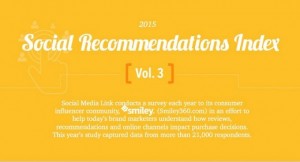
To one degree or another, everyone is concerned about what other people think of them. Of course, some people care less than others, whereas a proportion of individuals are focused entirely on what others think about them. But we all sit on this “spectrum” of wanting to know what others think of us.
It is a central part of our sense of self. We need to know who we are in order to function properly in the world. If you had no understanding of your “self”, you would not know each day whether you liked tea or coffee, for instance, or whether you enjoyed your job. It is your sense of self that is fundamental in helping you exist within the world around you.
Part of that feeling of self is derived from what other people think about us. It is their feedback which helps us confirm our sense of self. Some personality types are more focused on this than others. Extroverts, for instance, require a constant feed of information about them, whereas introverts need less frequent input to help with their sense of self. But every one of us needs that regular input from others – otherwise, we do not really know who “we” are.
The “selfie” is a significant part of this system. We take a picture of ourselves and others “like” it or comment on it or share it, all of which shows us that people think that we and the situation we are in are positive. That gives us the confidence to carry on in the way we are doing, heightening the sense of our self-identity.
However, there is a problem with all this. The more we share of our own lives, the less that others think of us, it appears.
A new study confirms that it is not what we say about ourselves that matters, but what others say about us.
The research was carried out in Scotland where psychologists wanted to find out whether the “warranting theory” existed on Facebook. This is a theory which proposes that individuals are more likely to misrepresent themselves, suggesting that third-party information is more reliable.
The new study found that when looking at Facebook profiles, more positive impressions about the individual were reported when their posts were general, rather than self-focused. With self-focused profiles, there were fewer positive thoughts about that person. The researchers also discovered that when the profiles included information about the individual posted by other people, then the positive impressions of that person increased.
In other words, if other people talk about you on social media then there is a much greater chance you will get positive feedback than if you speak about yourself. Rather than posting “selfies”, for instance, you really want your friends to post the pictures they have taken of you.
It appears that the inbuilt desire we have to gain feedback to help our sense of self is in conflict with the perception that people create of us. They are making a more negative view of us, compared with gaining the same information about us from other people.
So what does this mean in a practical sense for your use of social media? It suggests that if you want people to think nice things about you and thereby gain the positive feedback you need for your self-identity, then you need to get your friends posting things about you.
The more you talk about yourself, the less that people will like you and the more fragile your self-identity will become. The very tools that billions of people are using to help them confirm their sense of self could be the very tools that are destroying such a sense.
Digital & Social Articles on Business 2 Community(46)





